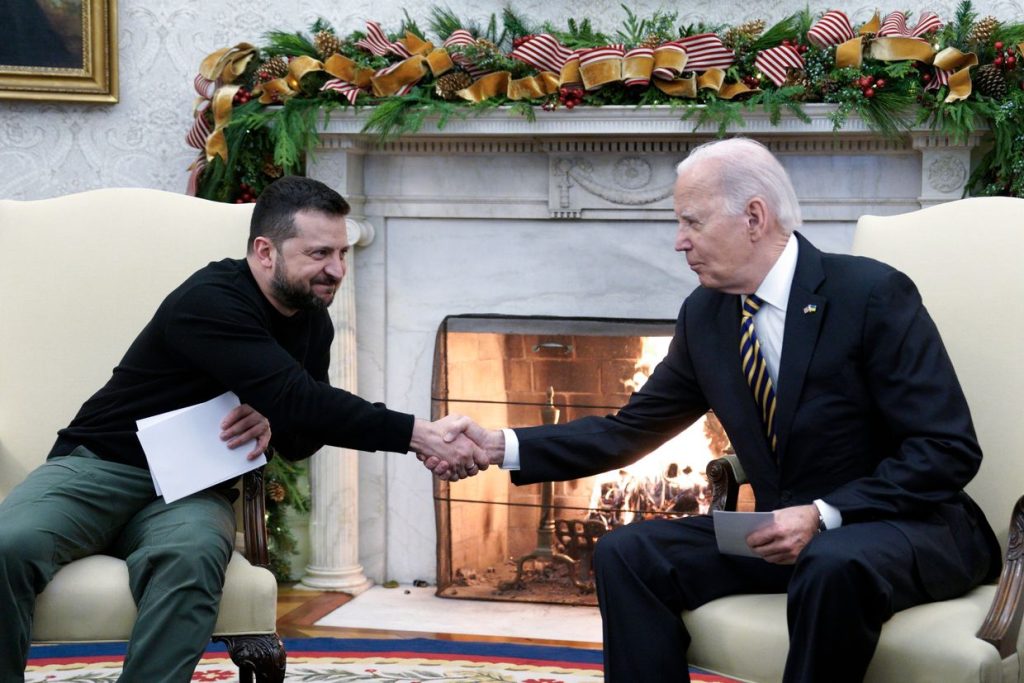President Volodymyr Zelensky of Ukraine is set to meet with President Joe Biden of the United States to sign a bilateral security agreement in the near future, according to U.S. Secretary of State Antony Blinken. Over 30 countries, including the U.K., Germany, France, and others, have joined the Group of Seven (G7) Joint Declaration of Support for Ukraine. Negotiations with Estonia, Spain, and the Czech Republic are also reportedly underway. The terms of the bilateral agreement between Ukraine and the U.S. are almost finalized, and there is hope for a meeting between Zelensky and Biden to address necessary issues and sign the agreement.
At the NATO summit in Vilnius in early July last year, G7 members presented a plan for long-term security commitments for Ukraine. This plan includes individual countries providing bilateral support to help Ukraine repel the ongoing Russian invasion and deter future aggression. The security guarantees would include obligations on sanctions, financial aid, and post-war reconstruction to bolster Ukraine’s ability to resist Russian aggression. President Zelensky announced that Ukraine is working on bilateral security agreements with seven more countries, in addition to those already signed, to further enhance its security and defense capabilities.
The fourth round of talks between Ukraine and the U.S. regarding the bilateral security agreement took place on May 6, with both sides expressing optimism about the progress being made. Foreign Minister Dmytro Kuleba emphasized the importance of the trusting dialogue established between Zelensky and Biden, which has paved the way for productive discussions and potential agreement signings. The ultimate goal is to strengthen Ukraine’s defenses and ensure its sovereignty against foreign aggression, particularly from Russia. The specifics of the agreements include long-lasting obligations and commitments from partner countries to support Ukraine’s security and stability.
The bilateral security agreements between Ukraine and various countries, including the U.S., aim to provide tangible support to Ukraine in its ongoing conflict with Russia and to prevent further aggression in the region. These agreements include provisions for direct military assistance, financial aid, and diplomatic support to enhance Ukraine’s ability to defend itself and its territorial integrity. The signing of these agreements represents a significant step forward for Ukraine in terms of building partnerships and alliances with key countries that share its commitment to democracy and sovereignty. The agreements also demonstrate international solidarity with Ukraine in the face of external threats to its security and stability.
President Zelensky’s announcement of Ukraine’s ongoing efforts to secure bilateral security agreements with additional countries indicates a proactive approach to strengthening its defense capabilities and building alliances with like-minded nations. By expanding its network of partners and supporters, Ukraine is positioning itself to better address the challenges it faces, both in the current conflict with Russia and in deterring future acts of aggression. The cooperation and support from various countries, including the U.S., demonstrate a united front in standing with Ukraine and upholding its right to self-determination and territorial integrity. These agreements signify a commitment to Ukraine’s security and sovereignty in a volatile geopolitical landscape.
In conclusion, the pending bilateral security agreement between Ukraine and the U.S., as well as ongoing negotiations with other countries, represent significant steps towards enhancing Ukraine’s defense capabilities and securing its sovereignty in the face of external threats. The support from the G7 countries and other allies underscores the importance of international solidarity in maintaining peace and stability in the region. By forging partnerships with like-minded nations and building a network of support, Ukraine is taking proactive steps to safeguard its security and defend against aggression. The signing of these agreements symbolizes a shared commitment to upholding the principles of democracy, freedom, and self-determination in the face of adversity.


